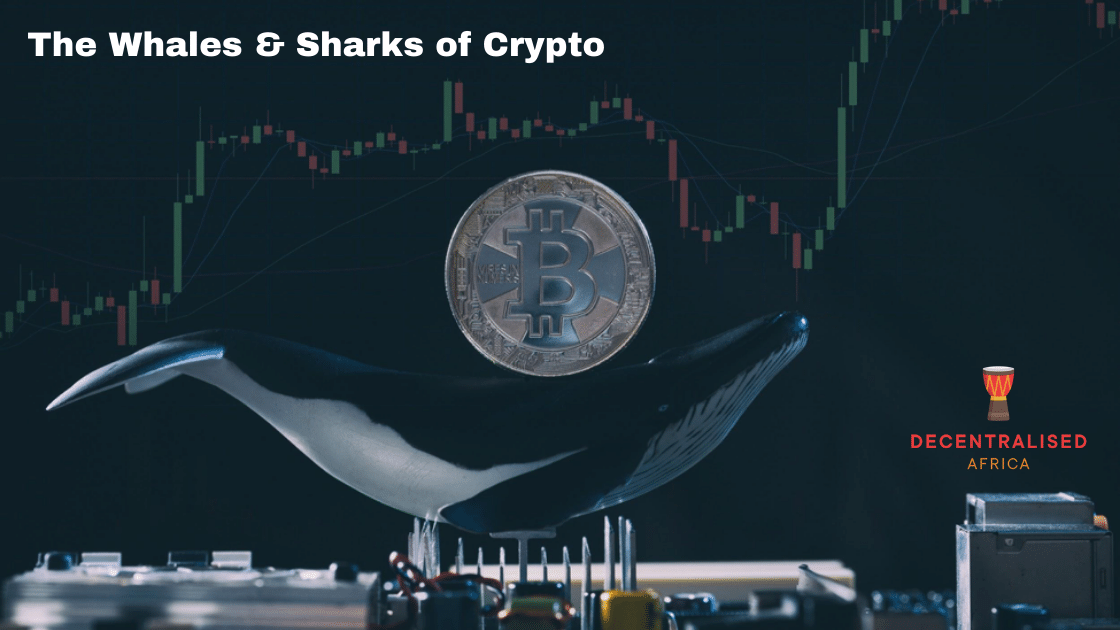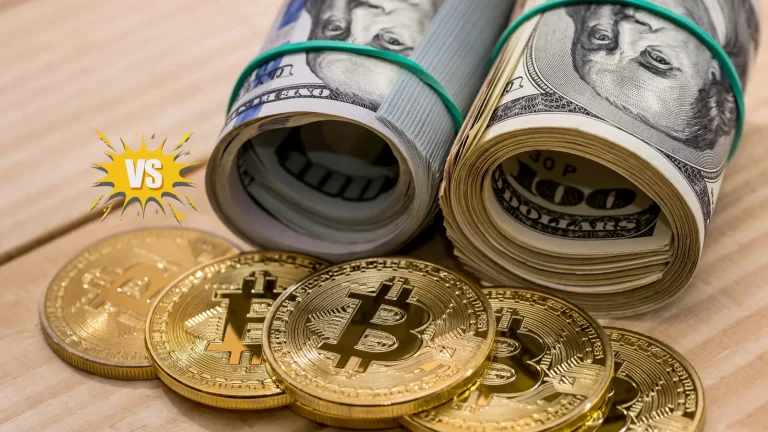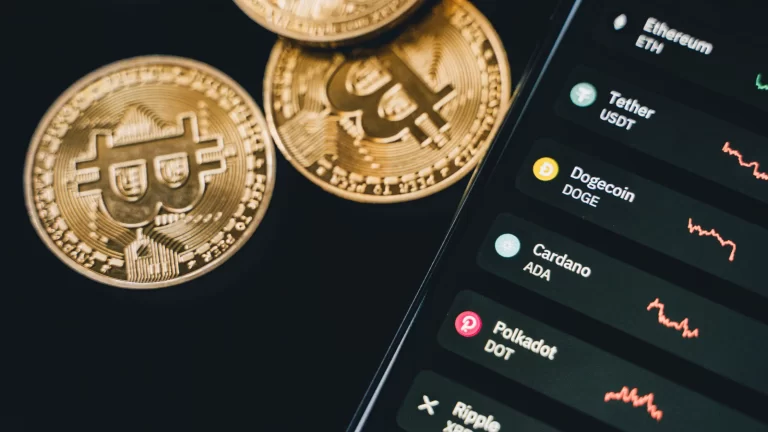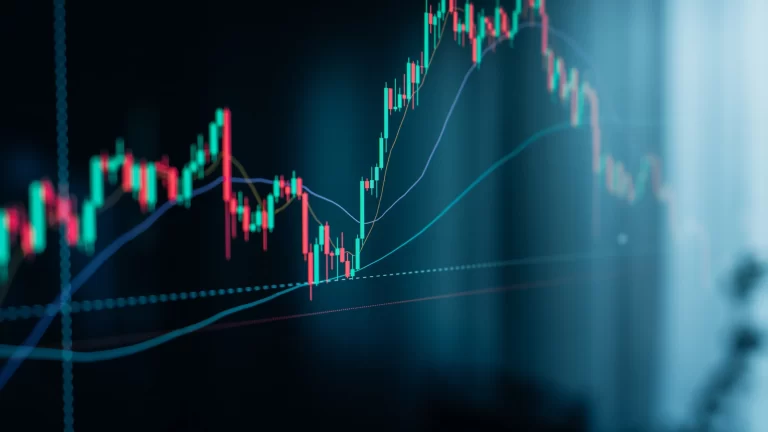Crypto whales & sharks: why we should care but not be scared

Crypto whales and sharks
The price of Bitcoin is controlled by the forces of demand and supply, the more people buy Bitcoin and sell it, the more the price changes. However, some people can single-handedly move the market. These people buy the equivalent of the Bitcoin that thousands or millions of people can buy, thus, manipulating the market.
These people can be a representation of an individual, group, or institution. They are referred to as Crypto whales and Crypto sharks. What is the definition of these two terms? Who are they? What are their implications? Should you be worried about the crypto whale or crypto sharks? All these questions will be answered in this piece. Find out if the blockchain is ready for more decentralization.
What is the definition of a Whale and a Shark?
Taking the ocean as an example, there are lots of fishes in the ocean, ranging from fingerlings to whales. The whale is the biggest fish in the ocean followed by the shark. Due to their size, their action always results in the disturbance of the water waves which affects the water level.
The ocean in this case is the market, the wave is the force of demand and supply that changes the price of a coin. The fishes, sharks, and whales all refer to the traders, investors, or holders.
Same as the crypto market, a whale can influence the force of demand and supply thereby causing a change in the price of Bitcoin and other Altcoins.
A whale is therefore an important player which can be an individual or other entity in the market that can cause volatility in the market. Whales hold a large amount of Bitcoin. They are the biggest investors in the Bitcoin market that have over 5000 BTC. Crypto sharks on the other hand refer to investors that have over 500 BTC.
Recently Elon Musk, the South African CEO of Tesla and SpaceX reportedly bought $1.5 billion worth of Bitcoin which is equivalent to approximately 33,333 BTC. This implies that Elon is a Bitcoin whale.
Examples of Crypto Whales and Sharks
There are thousands of whales around the world even in South Africa, but lots of them are unknown because they prefer to remain anonymous. However, here’s a list of popular crypto whales and sharks:
- Satoshi Nakamoto
- The Winklevoss Twins
- Tim Draper
- Elon Musk
- Barry Silbert
The above examples represent individuals. However, there is also what we call institutional money, where institutions like hedge funds or pension funds invest their money on behalf of their clients and make the money grow and yield returns. Other examples of Bitcoin whales which aren’t individuals include:
- Bitcoin Investment Trust
- Pantera Capital
- Falcon Capital Partners
- Bitcoin Reserve
Why do Bitcoin Whales and Sharks buy Bitcoin?
The reason why a crypto whale or shark would want to buy Bitcoin is the same for all individuals, groups, or institutions. It is to store the value of their money using Bitcoin as a deflationary element. Our traditional fiat is prone to inflation which means it can lose its value over time. However, Bitcoin gains value over time because it has a limited circulation.
Crypto whales understand this in detail and know the only way to store the value of their money is to invest in assets such as cryptocurrencies. The second important reason why whales and sharks buy Bitcoin is to make their money yield a huge return within a short period. For example, on the second day of this year Bitcoin hit a new all-time high of $30,000 which is equivalent to 450,600 ZAR at a 15.02 ZAR/USD rate, but today, Bitcoin trades around is $45,000 i.e. 675,900 ZAR.
Bitcoin is the only asset that can yield more than 20% of your investment in a very short period because of its volatility. However, things can also go south because of this single reason.
What are the implications of whales and sharks investing in Bitcoin?

Some of the implications of whales and sharks investing in crypto include; the increase in the price of Bitcoin and other altcoins, a new all-time high since they can influence the price and increase adoption. People know those whales and institutions won’t invest their money in something that isn’t safe. A practical example of that is the thousands of people registering on different P2P exchanges across the world to buy bitcoin. They can be responsible for price volatility as they can cause a bullish and a bearish trend in the market.
Should you care about whales and sharks?
Yes, you should.
Since they can manipulate the market, you need to care and read about the activities of these movers to know when to enter the market and when to get off the market. They can dump a particular coin on you if care is not taken, so you need to stay informed about the crypto market. Subscribe to popular crypto blogs or join groups and forums where the market is discussed. A good example of such a forum is the Remitano forum.
Should you be scared?
Of course NOT.
You need not be scared of them. The presence of a whale or a shark in a market is a good indication of security in the market. It also indicates the market has a lot of potential and it has attracted large investors.
The entry of a whale or shark increases the adoption of the coin. For example, a few days after it was made public that Elon Musk had bought Bitcoin, the price increased by 20% which indicated that lots of people followed suit and also decided to buy bitcoin. The price then shot up to reach an all-time high of $58,330.
In conclusion, the presence of a crypto whale or shark in a market is a good thing and is something to look forward to. They are not a threat to a market, rather they can be the catalyst that speeds up the adoption and acceptance of a crypto asset.





